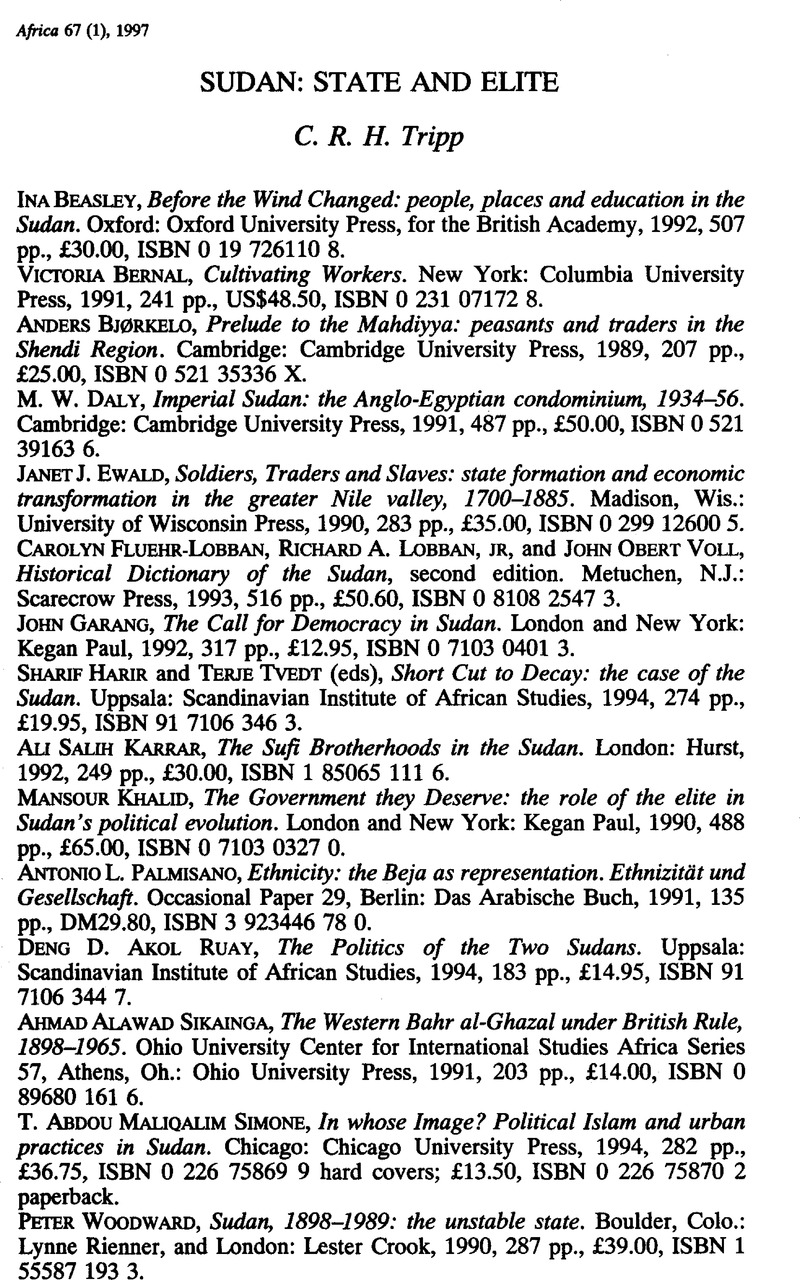Published online by Cambridge University Press: 07 December 2011

1 A point well brought out in Janet J. Ewald's study of the Taqali kingdom.
2 Superbly edited and annotated by Janet Starkey, the volume is the first in a series, Oriental and African Archives, dedicated to the publication of material from private archives related to oriental and African countries. It is to be hoped that they will all reach the conspicuously high standard set by this first volume.
3 To some degree a collective profile of this elite emerges from many of the individual entires in Carolyn Fluehr-Lobban et al., Historical Dictionary of the Sudan. The second edition contains some useful entries and it includes an excellent bibliography of over 150 pages. Nevertheless, there are some curious omissions. For instance, there is no entry for Yusuf Kuwa of the Nuba, nor for Hassan al-Turabi, who gets only a passing mention in the entry for the Muslim Brotherhood. Equally, it seems odd in a historical dictionary of Sudan to grant the Sudan Studies Association (founded in the United States in 1981) an entry as long as that of the Sudanese Socialist Union (the ruling party 1972–85), and then omit the Sudan Political Service altogether. It is also to be hoped that future editions will contain better maps.
4 Woodward's essay is a timely reminder of the shortcomings of possible constitutional ‘soultions’: see pp. 248–58 of Harir and Tvedt, Short Cut to Decay.